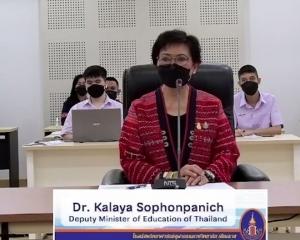Preparations for implementing the Government's Schools Plus initiative in Otago have begun.
Ministry of Education staff met Otago secondary school principals, the Otago Chamber of Commerce and representatives from the region's tertiary institutions yesterday to get feedback on the policy and discuss ways to implement the initiative.
Schools Plus aims to keep all young people in school or some other form of education or training until they reach age 18.
As part of the policy, the Ministry of Education has launched the Youth Apprenticeships pilot programme which offers training and work experience to secondary school pupils so they can earn credits towards an apprenticeship while they are still at school.
Concerns raised by school principals during the meeting included flexibility of the Schools Plus policy and where funding would come from once it was established.
The Catlins Area School principal Gavin Kidd believed Schools Plus would work well for rural schools, but it needed to have more flexibility to work in with other providers like Otago Polytechnic or Telford Polytechnic.
''We need dual enrolment _ we need to be able to have pupils enrolled at both secondary school and polytechnic. At the moment, that can't happen.
If a 16-year-old turned up at my door, and he's working on a farm and wants to do some literacy or other course at my high school, legally I can't enrol him unless he is doing some full-time course.''
Mr Kidd said the ministry would also need to consider funding transport for pupils at rural schools so they could access options available in other places around the region.
During the meeting, Queens High School principal Julie Anderson raised the idea of establishing a secondary schools cluster similar to the already established Dunedin Secondary Principals Collective and the Collaborative Schools Project so schools could support each other in implementing
the policy.
''The idea of doing something city-wide or Otago-wide that would allow us to provide a greater range of options for students would be wonderful. It would enable us to provide a wider range of career options and would hopefully allow us to use our funding more efficiently.''
Mrs Anderson said the challenge now would be to get all secondary schools, tertiary institutions and business organisations involved with a common understanding about the need to keep all pupils engaged in school until age 18.
The meeting was the fifth of many to be held around the country this year. A similar meeting will be held in Invercargill early next month.
Advertisement












